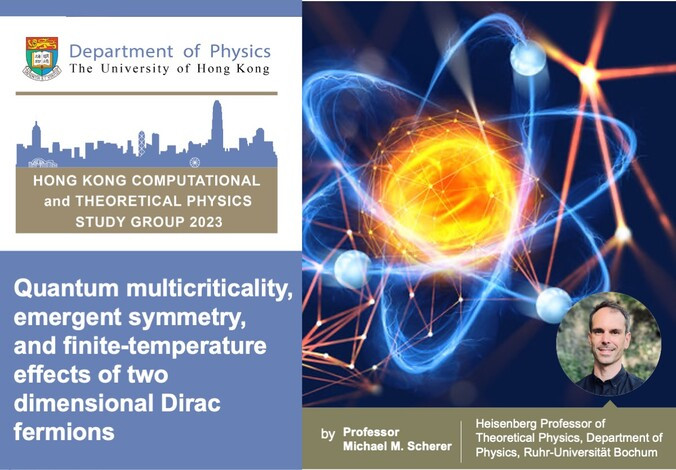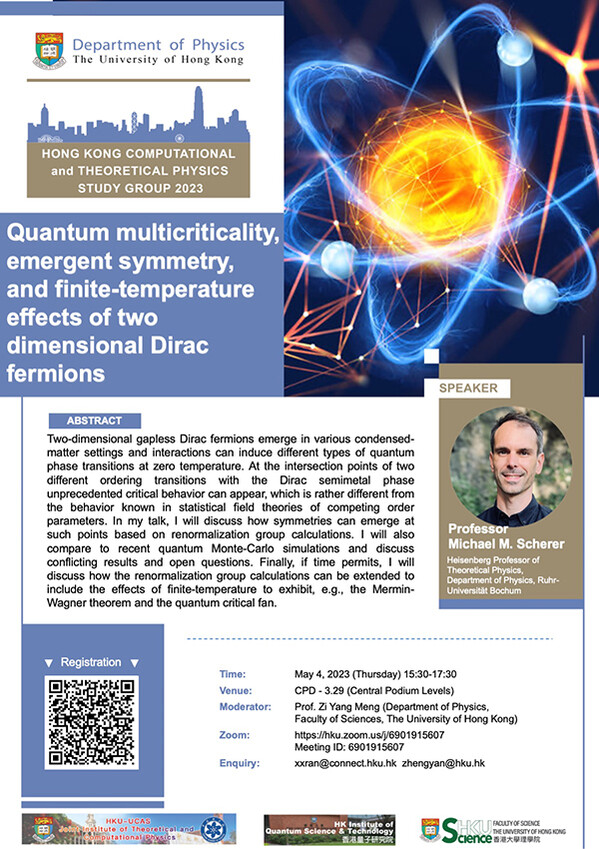Quantum multicriticality, emergent symmetry, and finite-temperature effects of two dimensional Dirac fermions

- Date & Time
- May 4, 2023 (Thursday) | 15:30-17:30
- Venue
- CPD - 3.29 (Central Podium Levels), Centennial Campus, HKU
- Speaker
- Professor Michael M. Scherer
Heisenberg Professor of Theoretical Physics, Department of Physics, Ruhr-Universität Bochum

Two-dimensional gapless Dirac fermions emerge in various condensed-matter settings and interactions can induce different types of quantum phase transitions at zero temperature. At the intersection points of two different ordering transitions with the Dirac semimetal phase unprecedented critical behavior can appear, which is rather different from the behavior known in statistical field theories of competing order parameters. In this talk, Professor Michael M. Scherer will discuss how symmetries can emerge at such points based on renormalization group calculations. He will also compare to recent quantum Monte-Carlo simulations and discuss conflicting results and open questions. Finally, if time permits, he will discuss how the renormalization group calculations can be extended to include the effects of finite- temperature to exhibit, e.g., the Mermin-Wagner theorem and the quantum critical fan.
Related link: https://quantummc.xyz/study-group/

Speaker Professor Michael M. Scherer
Heisenberg Professor of Theoretical Physics, Department of Physics, Ruhr-Universität Bochum
Professor Michael M. Scherer a Heisenberg Professor of Theoretical Physics, Department of Physics, Ruhr-Universität Bochumleader. The research of his group is focused on the exploration of emergent phenomena and correlated behavior of quantum matter and quantum materials. They develop and employ modern quantum field theoretical methods to understand and predict novel effects in a broad field ranging from condensed matter to particle physics.

